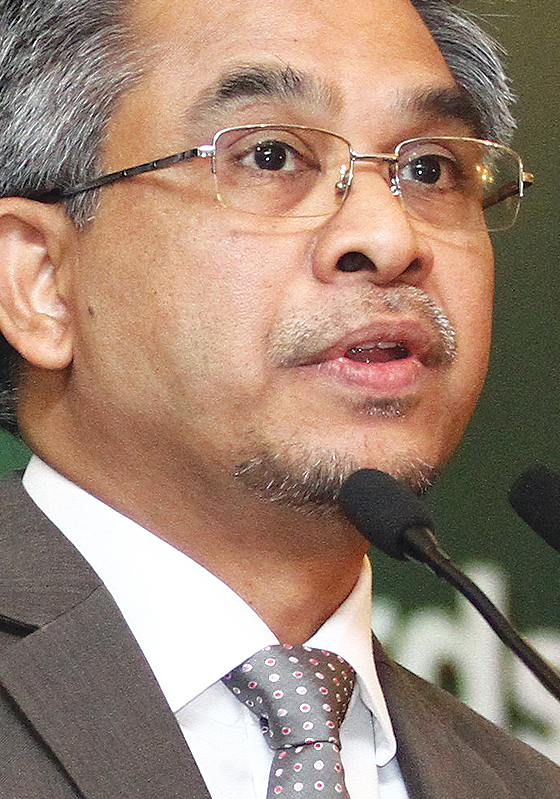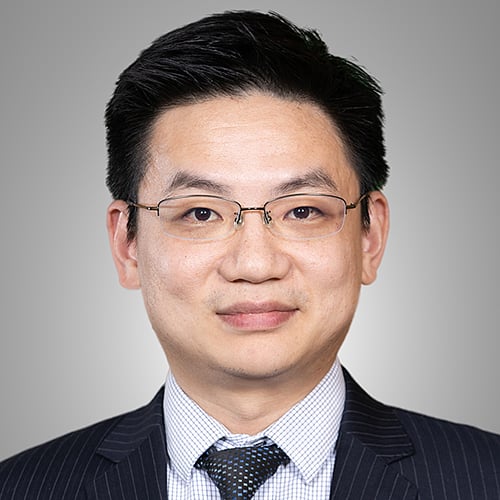 |
|
| Bakar: Most Asian banks tend to remain in their own comfort zones |
What is your biggest satisfaction in your journey to promote Islamic banking and finance and on the flip side, what is your biggest frustration?
I started as a Shariah scholar advising the banks to be Shariah-compliant in 1996, but somehow I decided to become a Shariah entrepreneur in 2005 when I set up my own company Amanie Advisors. We now have 10 offices around the world – both in Islamic and non-Islamic countries.
My biggest satisfaction is to be able to realize what we call the Shariah entrepreneurship in Islamic finance. The concept was rarely spoken of in many conferences. I’ve managed to convert the meaning of Shariah entrepreneurship and connect it to the real economic sectors, such as in oil and gas, transportation and infrastructure.
As a Shariah entrepreneur, I can see how Islamic financial principle can work in a real world across sectors. I am happy to note that Shariah entrepreneurship is a practical and workable concept and we have to promote it more in the areas of information technology, pharmaceutical, even in fashion, entertainment and tourism.
Shariah scholars have been deemed in the past to endorse Islamic products and that was what we’ve been doing for so many years. But we have to move beyond that in Shariah entrepreneurship. We have to convert the ideas, the skills and knowledge of Shariah into products in partnership with the global companies, which are looking for someone to make the whole presentation Shariah-complaint.
However, when we convert our ideas and develop them into products, we cannot be endorsing them ourselves. We have to present those products to other reputable Shariah scholars for them to look through and give the endorsement.
I am very passionate to make Islamic finance a mainstream financial system globally. Islamic finance is inclusive, it appeals to everyone, irrespective of religion. Anyone can benefit from it. What Islamic banking is trying to do is to generate income from your capital without having to go through a loan transaction. It is tied up with real economic activities. That is what I am pushing for the whole world to benefit.
On the other hand, my biggest frustration is how the leading banks in the world are not entrepreneurial enough to invest in Islamic banking and finance in the growth areas in the Third World and other developing countries. Their potential is great but the banks are not taking that first-mover advantage to invest in new markets in North Africa or in Central Asia, which requires not only a lot of capital, but skills and capabilities.
Unlike in the area of construction, for instance, where you see a lot of the Chinese, Korean and Japanese companies promoting their technology and expertise across the globe, no one is there to champion Islamic banking and finance. It is a pity that most Asian banks tend to remain in their own comfort zones, instead of expanding their horizon and become the first players in the new markets. These new markets will be the markets in the future because they have the resources and the people to make them happen.
How do you identify the markets that you want to tap and promote Islamic banking and finance?
We look at two aspects when looking at potential new markets. First is the acceptance of the stakeholders, including the government and semi-government entities. There should be some sort of a welcoming environment for Islamic banking and finance. We need to have some signal from those stakeholders and if we feel that they are willing to listen to our story, then we will open an office in that country. That’s what happened in Australia and in Ireland, which are not Islamic countries.
We do not have such issues in Islamic countries as many of them have even announced that they want to convert their whole banking system into Islamic, such as in Libya and some countries in North Africa.
What is more important in terms of our criteria is the economic potential of our target markets. We want to offer them an alternative source of funding through Islamic banking and finance. There are many good companies in Europe, but they lack funding. We may be able to offer them funding that is cheaper or even equal to their financing cost under their current medium-term note programme and available banking facility.
Banks in South Korea, for instance, are flushed with liquidity and they are looking for new markets to deploy their capital as well as their technology. We could partner with the Korean banks and companies willing to explore new markets and we can structure deals for them that are Shariah-compliant, or sukuk deals, which can be used to finance power plants or build hospitals.
Australia is another interesting market as many investors from GCC (Gulf Cooperation Council) countries are looking at it for its mining resources and for its food security.
Is China in your agenda?
China is very much in our agenda. There is no other bigger economy than China in the world at the moment, except the US. But it is not all about China, but about our ability to understand the China market and its economic potential for Islamic banking and finance. But as I said, we do not go to new markets unless we have a local partner who is very knowledgeable, well-connected and with whom we can work with. We are trying to look for local partners in China and in Hong Kong, which what we did in the other markets.
Is there really a great divide in Shariah rules and regulations between Asia and the Middle East as this issue still resonates today?
Differences over rules and regulations are not something that are common only in Islamic banking and finance, but in conventional banking as well. There are differences, for instance, in the accounting standards between the US and the UK.
When we offer Islamic global products such as US dollar sukuk, such as the Malaysian and Indonesian sovereign sukuk, there are no issues whatsoever because they are structured to satisfy every investor. There is no use working on the product when they could not be subscribed by multi-investors across the globe.
Domestic Islamic products are different because they are structured to suit particular domestic markets. You cannot take one domestic Islamic product and compare it with another domestic product in another country because once you do that, it will create a lot of confusion.
But things are changing. Beginning in November 2013, Malaysia has changed its stock screening methodology. It is now very much close to the other screening processes being used worldwide, such as by FTSE and Dow Jones in their Islamic indices.
Even on sukuk, Malaysia has been viewed to be flexible in their structures, but now the issuers know that they have to appeal to Middle East banks in Malaysia. They’ve started structuring products that can be subscribed by international investors based in Malaysia and outside Malaysia.
Why is it that we do not see enough of cross-border activities as far as Islamic finance is concerned?
You are right, but this is not due to Shariah principles, but due to the infrastructure. Let’s take the case of asset management, for instance. We do not have the UCITS (Undertaking for Collective Investment in Transferable Securities) platform yet in Islamic asset management. UCITS is a platform that allows any fund to be sold across the European Union. This is an issue that we need to look at – we lack the infrastructure to connect the Islamic asset management globally. To be able to sell a Malaysia fund to London, you need to go through a lot of processes and that would entail a lot of costs. Many Islamic funds are domiciled in Luxembourg because they have the UCITS platform. And because of the infrastructure that Luxembourg have, investors feel secured compared with the other offshore domiciles.
There are other financial centres coming up as an Islamic financial hub. What should Malaysia do to remain at the forefront in the development of Islamic banking and finance?
Malaysia has done a great deal in the development of Islamic banking and finance. However, in terms of the sukuk market, most of the issuances are mainly in ringgit. In order for Malaysia to go to the next level of leadership as an Islamic financial hub, it needs to diversify its currency base from ringgit into other hard currencies.
Related to that, what we also want to see is for overseas companies to use the Malaysian platform to issue their sukuk to raise funds to finance their projects overseas. At present, this platform is not being used other than the ringgit sukuk issuance, which is quite a pity because we have invested a lot in terms of infrastructure – from the application process to approval to rating and monitoring of the issuance.
While this is good for domestic investors since they can invest in good overseas companies and enjoy a natural hedge in their investment, what we need to do is to make our platform to appeal to issuers to come to Malaysia and issue their sukuk either in US dollar, in euro, in yen or even in renminbi. I hope this is something that Malaysia can do as part of its mission to promote more Islamic finance activities in other parts of the region.





.jpg)
.jpg)


